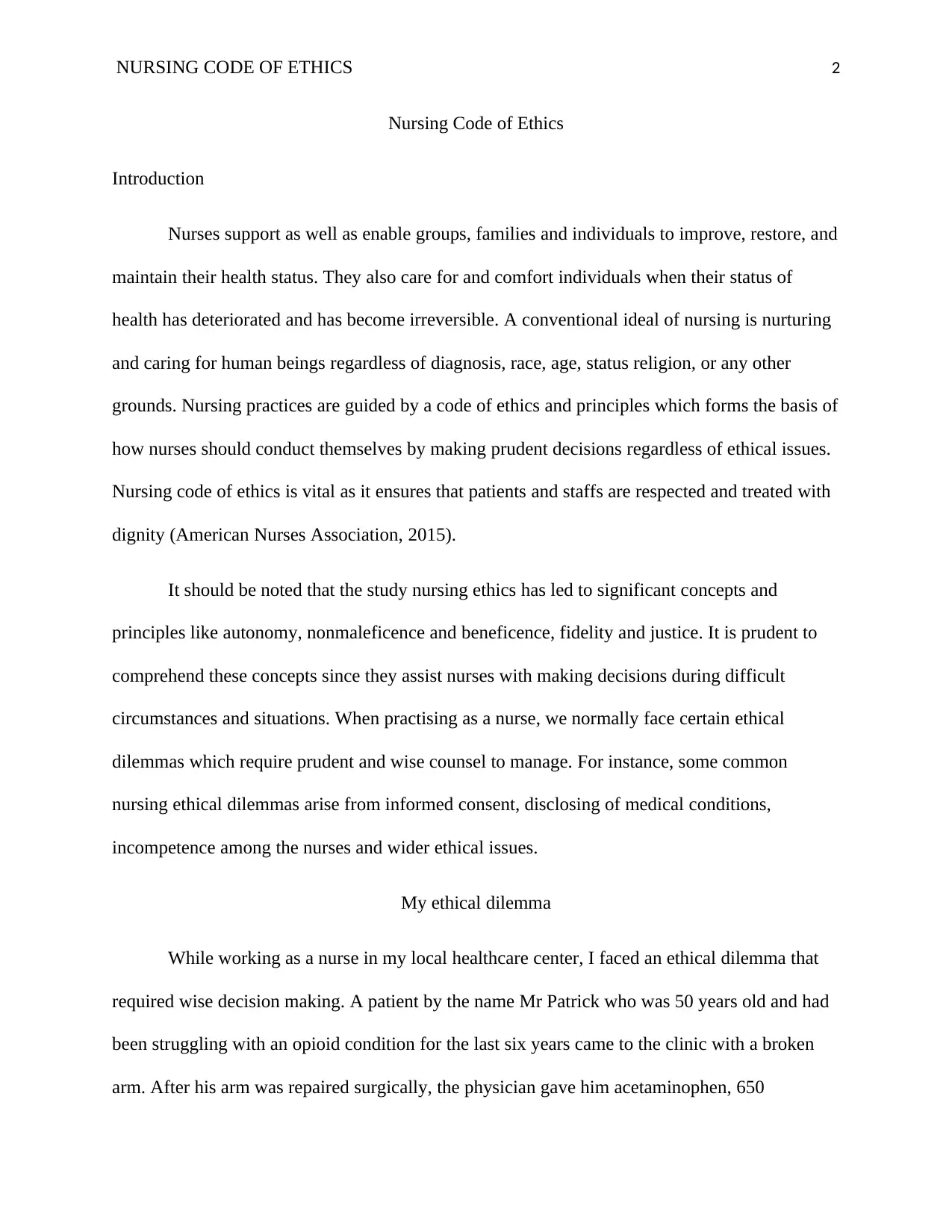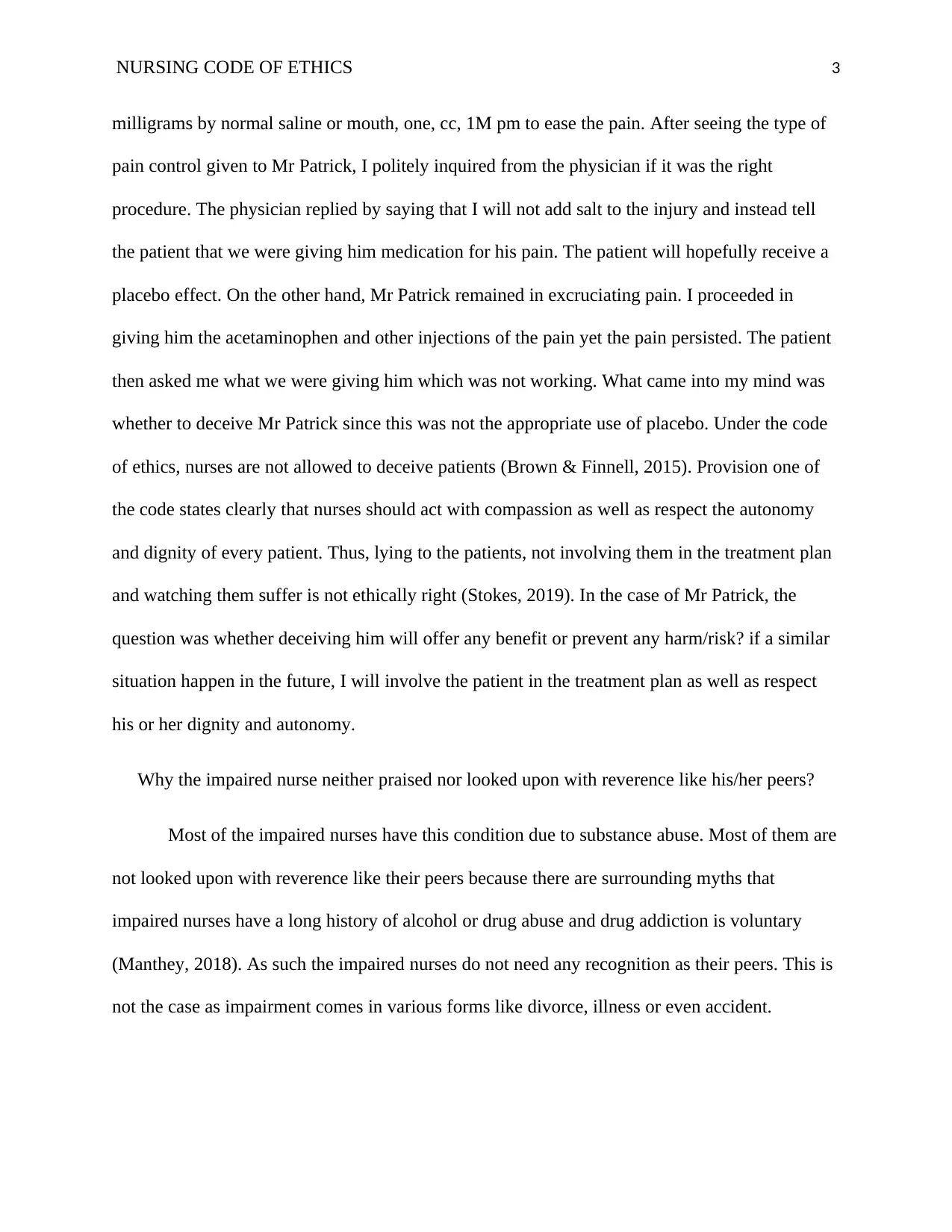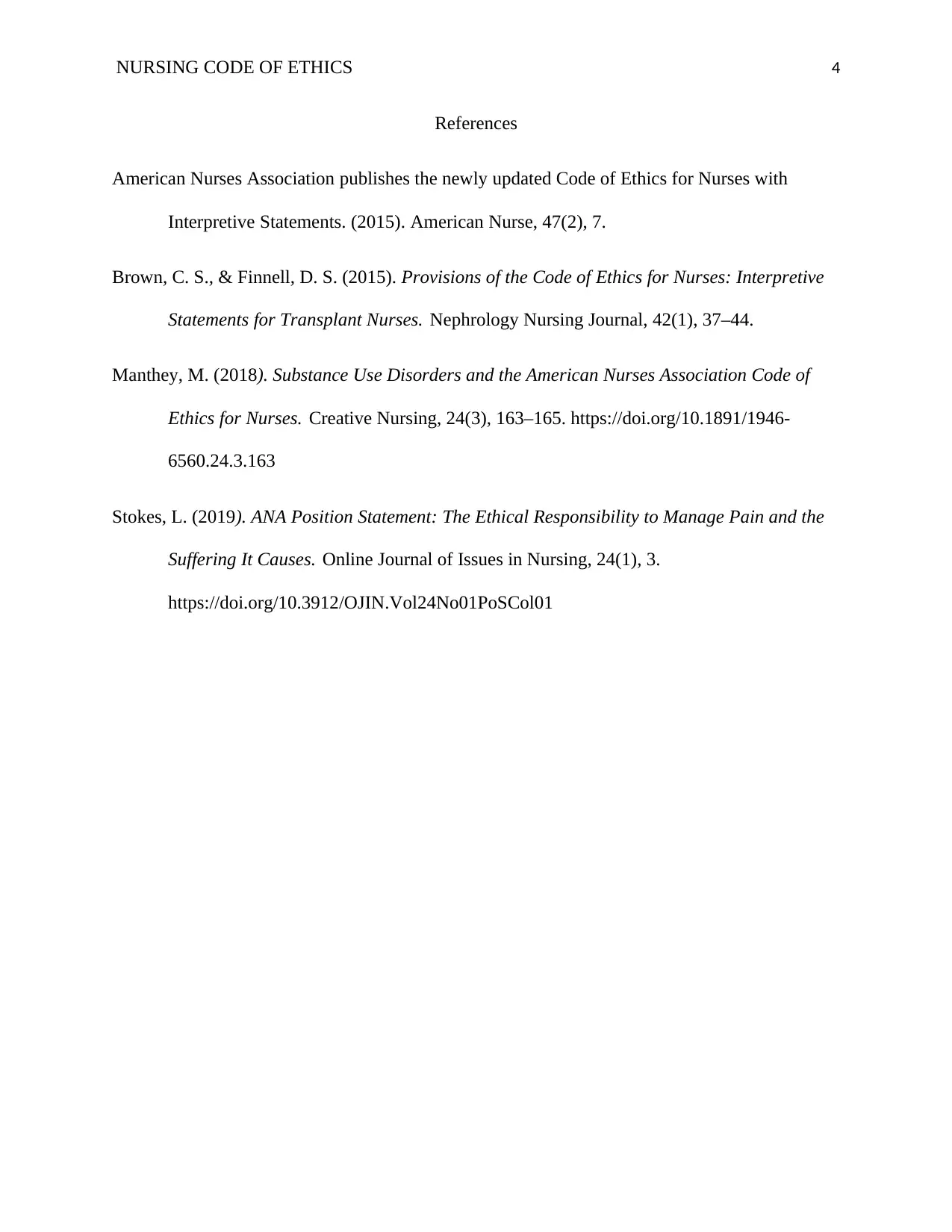Analyzing Ethical Dilemmas: A Nurse's Perspective on Patient Care
VerifiedAdded on 2023/04/24
|4
|847
|353
Essay
AI Summary
This essay delves into the complexities of the nursing code of ethics through the lens of real-world ethical dilemmas. It presents a case study involving a patient, Mr. Patrick, struggling with opioid addiction and experiencing a broken arm, highlighting the ethical considerations in pain management and the use of placebos. The essay also addresses the perceptions surrounding impaired nurses, particularly those with substance abuse issues, challenging common myths and advocating for a more nuanced understanding. By referencing the American Nurses Association's Code of Ethics, the essay underscores the importance of patient autonomy, dignity, and the ethical responsibilities of nurses in providing compassionate and respectful care. The author reflects on their own experiences and proposes a commitment to involving patients in treatment plans and upholding their rights in future similar situations. Desklib offers a platform for students to access this and other solved assignments.
1 out of 4






![[object Object]](/_next/static/media/star-bottom.7253800d.svg)